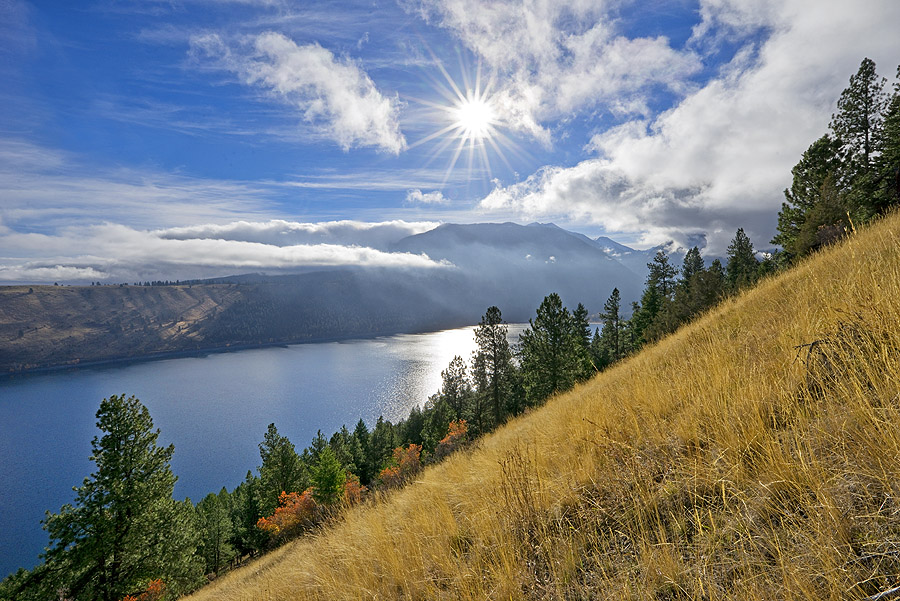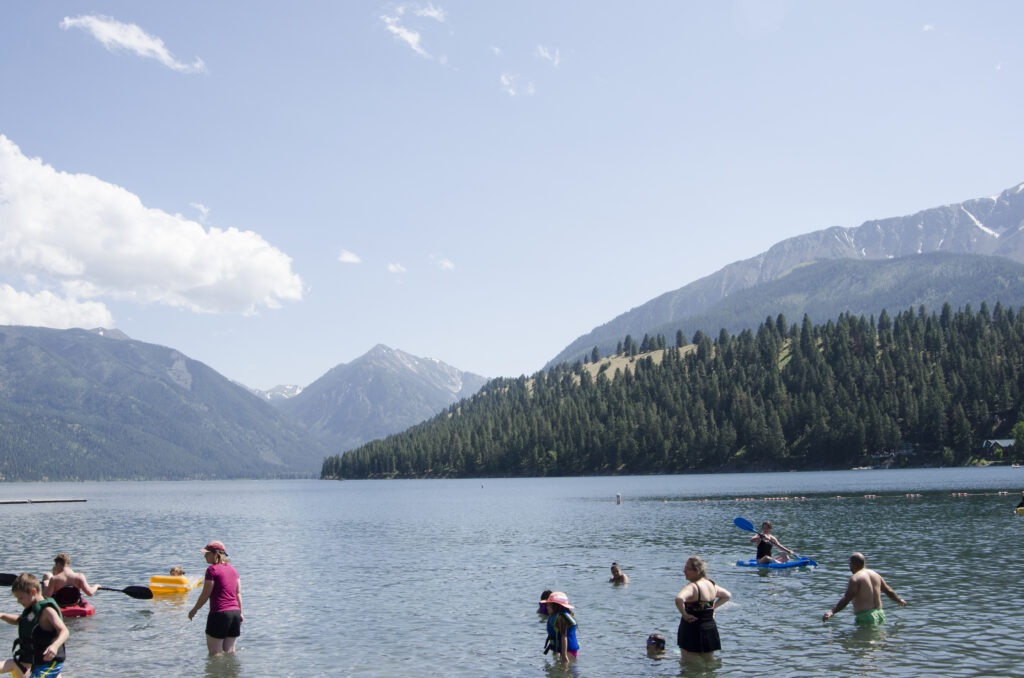
Oregon nonprofit returns Wallowa land to Nez Perce Tribe
Listen
(Runtime 00:53)
Read
Wildlife will have easier access to the waters of Wallowa Lake thanks to a gift from an Oregon nonprofit.
Kathleen Ackley is the executive director of the Wallowa Land Trust. As more Northwest lake communities are being developed with vacation homes and AirBnBs, she says her organization’s focus is protecting natural areas, open spaces and farms in Northeast Oregon.
The nonprofit recently gifted 30 acres of undeveloped land near the lake to the Nez Perce Tribe.
“The more we began to work with the tribe and really understand where their values are, it made more sense that they could manage it just as well as we could, if not better,” Ackley said.
Portland General Electric settled a lawsuit in 2011 over emissions from a Boardman coal-fired power plant. The court awarded $2.5 million for environmental restoration and clean energy projects as part of the settlement.

Visitors enjoy a summer’s day at Wallowa Lake south of Joseph, Oregon. The small lakeside town is a popular tourist destination in the warmer months. (Credit: Annie Warren / NWPB)
“We were lucky enough to receive some of those funds, and we used that to buy the land,” Ackley said.
Shannon Wheeler, vice-chairman of the Nez Perce Tribal Executive Committee, said the land will be managed as a wildlife corridor, so different species can access the lake.
“It’s just an important piece to be able to have ourselves, once again, tied into the land. The Nez Perce view ourselves this way,” said Wheeler. “We’re the same as the land and our blood is tied to the land and the land tied to us.”
Wallowa Lake and the surrounding area make up part of the Nez Perce Tribe’s historical homelands. Members of Ackley’s organization believe in the idea of restorative justice and returning land back to its rightful owners and stewards, said Ackley.
Wallowa Land Trust will continue to pay property taxes on the property.
“Every step taken in protecting it and the lands surrounding it is an important step into our future,” said Samuel N. Penney, chairman of the Nez Perce Tribal Executive Committee, in a press release sent by the tribe.
Managing the lands is important not just for the future of the tribe, but for “Pike’ Weetus,” or Mother Earth, Wheeler said.
“There’s a way to live with the land and we want to continue to exist with the land because it’s essentially who we are,” he said.















